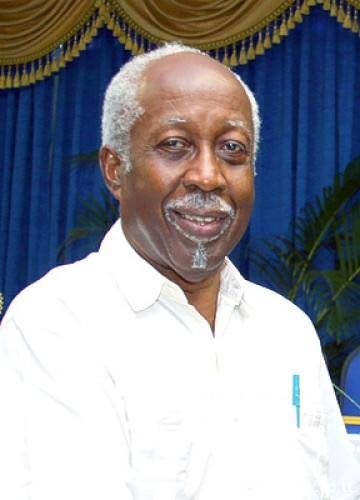The cruciality of education

REGINALD DUMAS
EDUCATION IS crucial to a country’s socio-economic progress. Have as many “natural resources” as you like, you need education (and, of course, enlightened governance) for ordered development. What, for instance, are Singapore’s natural resources? In 1962, when we both became politically independent, their gross domestic product per capita was US$472; ours was US$704. In 2021, ours was US$15,243; theirs was US$72,794. Yes, you read that correctly.
And where do the two countries stand educationally? In his 2023 budget statement, Finance Minister Imbert claimed that “the quality of our human capital (was) comparable with many advanced and emerging developing countries.”
Compare us with Singapore. That country tops the list of the 174 countries surveyed in the 2020 World Bank Human Capital Index; TT is 67th. Singapore’s ranking was no fluke. The 2015 Programme for International Students’ Assessment (PISA) also lists it first (of 70 countries surveyed) in science, reading and maths. TT is number 53. Brilliant.
But what do we mean by “education?” I wrote this in September 2015: “(It) has seemed to me for years that we measure accomplishment in that field by the number of passes obtained by this school, or grades obtained by that pupil, in the various academic subjects taken at any of the three levels we have…
“However, is education only, or primarily, success in exams? To what end are we ‘educating’ our nation? Are we turning out people who can think critically, or people who, as a former UWI lecturer was telling me (recently), merely regurgitate what they have been fed?” What has changed in the last seven years? We’re not alone, of course; indeed, our deficiencies are exceeded by those of many others. But we shouldn’t be judging ourselves against the shortfalls around.
Minister Imbert went on to assert that covid19 had caused “a clear reduction of achievement,” and he announced a number of remedial measures. I was particularly interested to hear him say that “in this new arrangement, national priority needs (would) be a determining factor.” That hasn’t always been the case.
I would like to hope that TT sent a strong delegation to last month’s UN Summit on Transforming Education, and that we will be guided by the vision statement of Secretary-General Antonio Guterres and by the summit’s recommendations largely based on that statement.
The SG’s opening words were: “Education is a fundamental human right.” But education, he continued, “beset by inequalities and struggling to adjust to the needs of the 21st century, is (today) in crisis…Some 30 years after global commitments to ensure Education for All, nearly half of all children of the world are not enrolled in pre-primary education. Studies show that up to 70 per cent of children in poorer countries are unable to read a basic text by age ten. In a world that is experiencing a fourth industrial revolution, nearly half of all students do not complete secondary school and a full 700 million adults are illiterate, the majority of whom are women. In developed countries, education disparities that are often related to income, race and gender are reinforcing privilege and further entrenching poverty.”
That wasn’t all.
Aggravated by the covid19 pandemic, the education crisis “runs much deeper and goes beyond the challenge of equity and equality. Study after study, poll after poll, draw the same conclusion: education systems are no longer fit for purpose.” Young people, adults, employers, teachers, parents are complaining, and “learning continues to underplay skills, including problem-solving, critical thinking and empathy.” Is TT listening?
Guterres spoke about “transformative education, (which) should build on what communities, families, parents and children treasure most, and respond to local, national and global needs, cultures and capacities. It should promote the holistic development of all learners throughout their lives, supporting them to realise their aspirations and to contribute to their families, communities and societies.”
To achieve this, there were four key areas: learn to learn, learn to live together, learn to do, and learn to be (this last implying “the deepest purpose of education, which is to instill in learners the values and capacities to lead a meaningful life, to enjoy that life, and to live it fully and well”).
To meet those higher purposes, education would need to be transformed in four areas: ensuring a learning environment that supports the development of all learners; enabling teachers to transform themselves and become agents of change; harnessing the digital revolution for the benefit of public education; and investing more, more equitably, and more efficiently in education. “Quality education,” said Guterres, “is the single most important investment that any country can make for its future and its people.”
Yes, education received the largest single slice of our 2023 budget. But is TT listening?


Comments
"The cruciality of education"